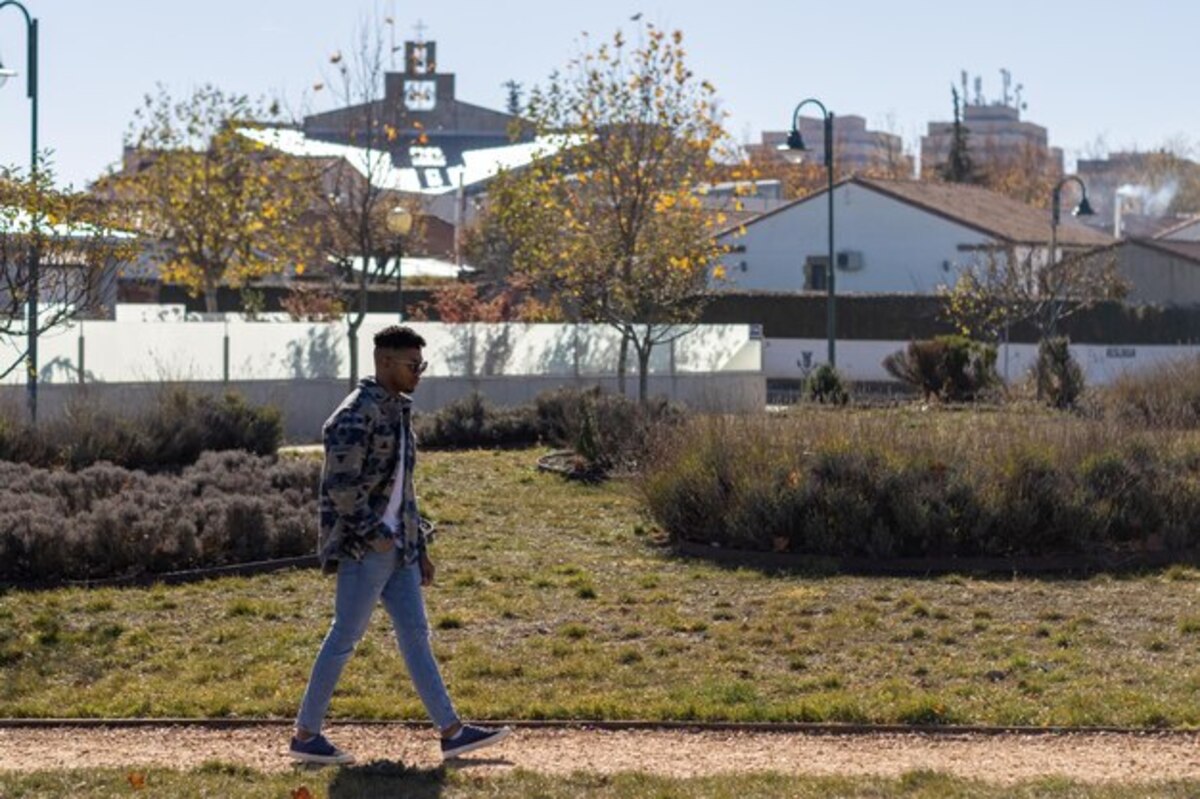The value of privacy in choosing your urban or rural home.

The value of privacy is a fundamental aspect when choosing your home, whether in urban or rural settings. In a world where connectivity and the fast pace of life seem to dominate, finding a refuge that respects and protects your intimacy becomes essential. Do you prefer the hustle and closeness of the urban environment or the tranquility and space of the countryside? This article will guide you through the key considerations to make an informed choice that will not only impact your quality of life but also the appreciation of your investment.
1. Privacy as a priority: Why is it crucial in your home?
Privacy at home is an aspect that transcends the simple need for physical spaces; it is a fundamental right that directly influences our quality of life. In an urban environment, where homes are often closer together, the ability to enjoy moments of tranquility and reflection can be compromised. Constant exposure to noise, outside gazes, and an active social life can generate stress and affect our emotional well-being. Therefore, prioritizing privacy when choosing a home is crucial to ensure a space where we can be ourselves without distractions or external interruptions.
In contrast, rural environments offer a series of advantages that favor personal intimacy. Properties in countryside areas often feature spacious gardens and significant distances between neighbors, allowing for enjoyment of the outdoors and nature without sacrificing personal privacy. This setup not only promotes a more relaxed lifestyle but also facilitates valuable moments with family and friends in a safe and welcoming environment. Choosing wisely between urban and rural will impact not only your peace of mind but also how you relate to your immediate surroundings.
Finally, it is important to consider how privacy affects not only our interpersonal relationships but also our mental and physical health. A home that respects this need creates a refuge where we can disconnect from the outside world and recharge. When making decisions about where to live, we should carefully evaluate the available options to find that perfect balance between community and intimacy. This conscious approach to privacy will ensure that your choice is not only suitable for your current needs but also a sustainable long-term investment in your overall well-being.
2. Urbanism: Advantages and disadvantages in terms of privacy.
Urban planning, with its dense design and proliferation of buildings, offers a series of advantages and disadvantages in terms of privacy that must be considered when choosing a home. In urban environments, proximity to services, public transport, and cultural activities can be a great attraction. However, this proximity also implies that personal spaces are more limited and homes tend to be more exposed. Neighbors are often just a few meters away, which can make it difficult to enjoy moments of tranquility without external interruptions or curious gazes. Life in the city can lead to a feeling of being constantly observed, which could affect emotional well-being and the perception of privacy.
On the other hand, modern urbanism has begun to incorporate solutions to mitigate these concerns regarding privacy. Innovative architectural projects have introduced designs that prioritize separation between residential units through private balconies or vertical gardens, creating areas of personal refuge even within the urban bustle. Additionally, many communities have developed shared spaces that encourage social interaction without completely sacrificing individual privacy. As cities evolve, it is crucial to evaluate how these aspects are managed in your future urban dwelling to find an appropriate balance between enjoying the benefits of the metropolitan environment without giving up the essential value of your private space.
3. Rural life: Open spaces and their impact on intimacy.
Rural life offers a notable contrast to the urban environment, especially in terms of open spaces and their influence on the intimacy of its inhabitants. In the countryside, the expanse of land and the distance between properties allow each home to enjoy its own personal refuge. This physical separation not only provides a tangible sense of privacy but also fosters a more peaceful lifestyle, where the sounds of traffic and crowds are replaced by the whisper of nature. The possibility of enjoying the outdoors without worrying about prying eyes becomes an unmatched luxury for those who value their personal space.
However, it is important to consider that this greater distance between neighbors can also bring with it a different sense of community. In rural areas, the ties tend to be closer, and interactions are often less frequent but more meaningful. This means that although the physical space is vast, social intimacy can manifest in a different way. The choice of a rural home involves finding a balance: enjoying open space while maintaining a meaningful connection with others. Thus, living in a rural environment not only redefines what it means to have privacy but also transforms our perception of how we relate to our surroundings and our neighbors.
4. Comparative analysis: Costs associated with privacy in urban vs rural areas.
When comparing the costs associated with privacy in urban and rural environments, it is crucial to consider several factors that directly impact your choice of home. In urban areas, privacy is often linked to higher prices due to the demand for housing that offers features such as fences, walls, or advanced security systems. City living may require additional investments to create an intimate space, whether through renovations or the purchase of properties with larger lots. Furthermore, the noise and constant movement may lead residents to seek more expensive solutions to mitigate these disturbances in their daily lives. On the other hand, rural areas tend to offer a relatively lower cost per square meter and more available space, allowing for natural privacy without the need for significant expenditures. Rural properties often have extensive land where effective physical separation from the immediate surroundings can be implemented. However, it is important to consider that although the initial cost may be lower, expenses related to the maintenance of outdoor space and the distance to basic services could balance the scales. Thus, when analyzing these financial aspects, it is essential to evaluate not only the purchase or rental price but also how each environment contributes to the true value of your personal privacy.
5. Local regulations: How they affect your right to privacy in different locations.
Local regulations play a crucial role in protecting your right to privacy, as these regulations vary significantly between different localities. In urban areas, zoning, construction, and land use laws can influence the proximity of buildings and their heights. This means that even if you choose a home with the good intention of preserving your privacy, the surrounding environment can compromise it through adjacent windows or shared spaces. Additionally, many cities have specific rules regarding the installation of cameras or security systems that can affect how you protect your personal space.
On the other hand, in rural areas, regulations tend to be more lenient, which might provide greater freedom to enjoy a private and open space. However, this can also have its drawbacks; for example, the lack of clear regulations regarding urban development can lead to situations where new projects built nearby affect your tranquility and privacy without prior notice. Therefore, it is essential to research local laws before making a decision about where to settle. By knowing these regulations, you can anticipate potential issues and ensure that your new home meets your personal privacy needs.
6. The influence of the environment: Nature versus urbanization in the perception of privacy.
The perception of privacy is deeply influenced by the environment in which we choose to live. In urban settings, the closeness of residences and the constant activity of the city can make people feel exposed and less protected. Although cities offer a vibrant social life and access to a wide range of services, this proximity also brings the possibility of constant interruptions and a lack of personal space. On the other hand, rural spaces tend to offer a greater sense of isolation and connection with nature, which can enhance the feeling of privacy. The expansiveness of the landscape, along with fewer neighbors, allows for the creation of more intimate environments where one can enjoy their home without the distractions of the outside world.
However, it is important to consider that each person has different needs and expectations regarding privacy. For some, the urban bustle can be stimulating and even comforting; while others may find it overwhelming. The way we perceive our intimacy is linked not only to the physical environment but also to factors such as the architectural design of our homes and how they integrate into their context. A well-designed home in an urban area can offer innovative solutions to maximize privacy, such as vertical gardens or green roofs, while a house in the countryside might take advantage of its open space to create private outdoor areas. In the end, it is about finding a balance between what each environment offers and how these elements influence our everyday experience of home.
7. Real estate appreciation: Where do you invest better according to your privacy needs?
Real estate appreciation is a crucial concept that influences the decision of where to invest based on your privacy needs. In urban environments, the demand for properties close to services and transportation can elevate the value of your investment, but these areas are often associated with lower privacy due to the proximity of other buildings and active public life. On the other hand, rural properties tend to offer more space and tranquility, which can result in a greater sense of privacy. However, it is important to consider that rural areas may experience slower growth in terms of appreciation due to their distance from urban centers.
When evaluating where to invest, consider not only the current price of the property but also the potential for development in the area. In emerging urban areas, where infrastructure improvements are being made or new public spaces are being created, you might find valuable opportunities that increase your long-term investment without sacrificing your desire for privacy. Meanwhile, rural communities can offer a more relaxed and less crowded lifestyle; therefore, it is essential to weigh what type of environment aligns best with your expectations regarding privacy and personal well-being. The key is to balance your immediate desires with a clear vision of the economic future of the chosen area.
8. Tips for maximizing privacy in an urban or rural home.
To maximize privacy in a home, whether in an urban or rural setting, it is essential to consider both the location and the design of the property. In urban areas, where houses are often closer together, opting for homes with tall fences, gardens, or dense bushes can help create a visual barrier. It is also advisable to choose windows with frosted glass or curtains that provide greater discretion without sacrificing natural light. In rural settings, although space is usually more ample, it is important to plan the layout of the home and its access points to avoid being easily visible from public roads or neighboring properties.
In addition to structural elements, implementing technology can be an excellent way to enhance privacy. Surveillance systems that include cameras and sensors not only provide additional security but also allow for monitoring the environment from the comfort of home. Likewise, considering solutions like acoustic screens can be beneficial for reducing external noise in heavily trafficked urban areas. Finally, cultivating a proactive mindset regarding privacy involves setting clear boundaries about who has access to your personal space and how you interact with your surroundings, which will contribute to creating a refuge that respects your intimacy in any context.
9. Real testimonies: Experiences about living with or without adequate privacy.
The testimonies of those who have lived with or without adequate privacy offer invaluable insight into the impact this aspect has on quality of life. Many urban residents, for example, share experiences where the constant noise and proximity to their neighbors have affected their emotional well-being. The lack of personal space can lead to feelings of anxiety and stress, turning a home that should be a sanctuary into a source of discomfort. On the other hand, there are those who value the vitality of the urban environment but recognize that having a private space is essential for disconnecting and recharging. In contrast, the testimonies of those who have chosen to live in rural areas highlight the peace and tranquility that a more private setting provides. The ability to enjoy spacious outdoor areas and have a house away from urban noise allows many to experience a more relaxed life connected to nature. However, there are also those who warn about the disadvantages of this choice, such as social isolation or difficulty accessing basic services. These accounts emphasize that the balance between privacy and community is essential for making informed decisions about where to settle and how to maximize both personal comfort and social interactions.



